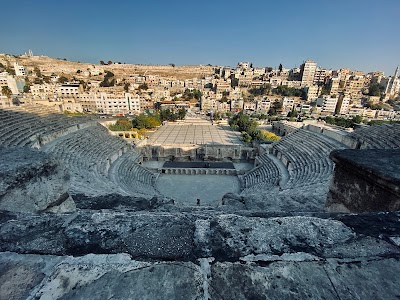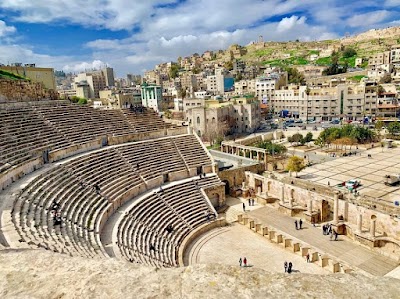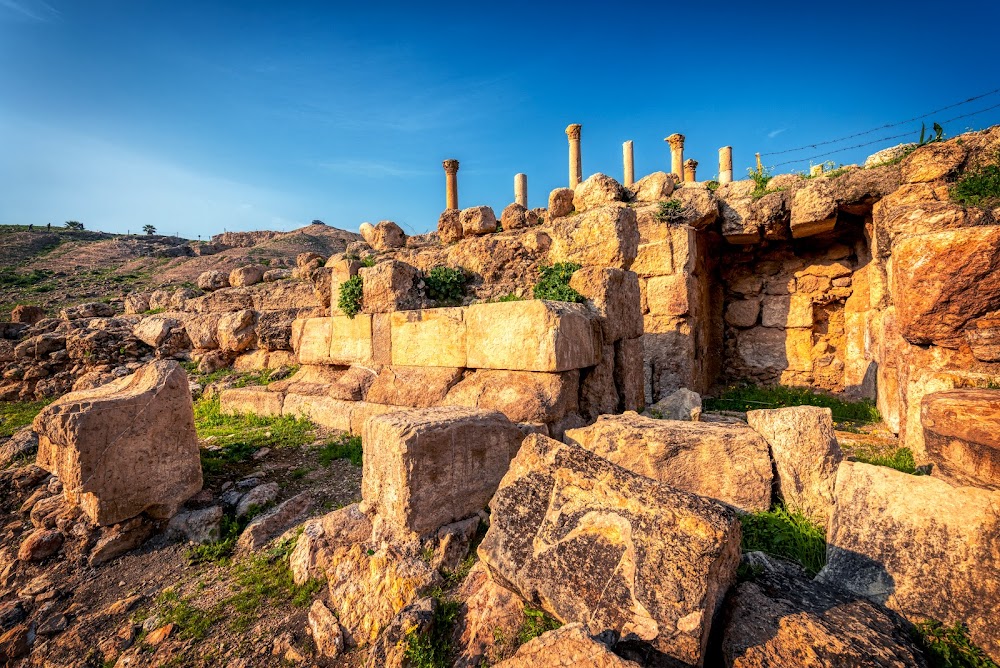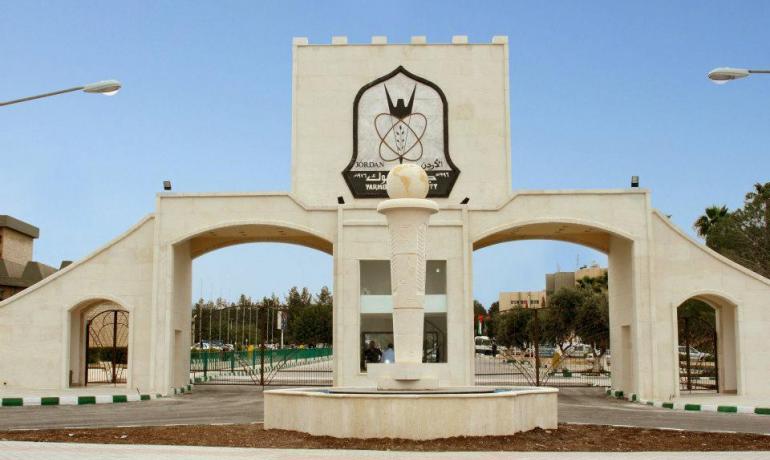Roman Theater (المسرح الروماني)
Overview
Located in the vibrant city of Irbid, Jordan, the Roman Theater stands as a remarkable cultural and historical landmark, attracting tourists from around the world. Situated in the northern region of the country, Irbid is celebrated not only for its modernity and academic institutions but also for its rich historical narrative. The Roman Theater is among the most significant remnants of ancient architecture in the area, offering visitors a unique insight into the ingenuity and entertainment practices of the Roman Empire.
The history of the Roman Theater dates back to the Roman period when Irbid, known as Arabella, thrived as an essential part of the Decapolis—a group of ten cities along the eastern frontier of the Roman Empire in Jordan, Syria, and Israel. Constructed between the 1st and 2nd centuries AD, this theater served as a bustling center for social gatherings and theatrical performances. The impressive Roman engineering is evident in its design, crafted from local limestone to accommodate thousands of spectators.
The significance of the Roman Theater extends far beyond its architectural beauty. It serves as a testament to the cultural and societal advancements achieved during the Roman Empire. The theater is a clear representation of the spread of Roman culture and infrastructure, highlighting how Irbid embraced Mediterranean civilization. Its design and construction techniques exemplify Roman architectural knowledge, from its exceptional acoustics that allowed actors' voices to resonate throughout the audience to the intricate stonework that has stood the test of time.
Visitors to the Roman Theater can expect to be captivated by several remarkable features. One standout aspect is the theater's semi-circular amphitheater design, complete with tiered seating that ensures unobstructed views of the stage. The well-preserved orchestra, a circular space at the center for performances, further enhances the experience. A visit to the theater also provides insights into the daily lives of Romans, where entertainment played a vital role in social interaction, deeply intertwined with both ritual and leisure.
Another fascinating element of the theater is its historical role as a community hub. It was not exclusively a venue for performances but also served as a gathering place for public meetings, political discussions, and marketplaces. This multipurpose functionality underscores the theater’s significance beyond mere entertainment, emphasizing its role in fostering community cohesion and public discourse.
Surrounding the Roman Theater is a landscape rich in history. The archaeological layers of the city reveal extensive historical strata, from the Neolithic period to Islamic civilization, seamlessly woven into the fabric of modern life. Exploring the vicinity can lead tourists to other captivating archaeological sites, each telling its own story, thereby enriching the overall experience.
For the modern traveler, visiting the Roman Theater is akin to stepping back in time. Guided tours are available, offering in-depth knowledge about the theater’s history, architectural details, and the cultural significance of Roman entertainment. These tours often include intriguing anecdotes and lesser-known facts, such as the types of plays performed and the social norms depicted in Roman theater, greatly enhancing visitors’ appreciation of the site.
To fully immerse yourself in the ancient atmosphere, consider attending cultural events hosted at the theater, which recreate the performances that once captivated Roman audiences. Carefully curated to respect the historical authenticity of the venue, these events provide a unique entertainment experience that connects the past with the present.
In conclusion, the Roman Theater in Irbid, Jordan, is more than just an archaeological site; it is a vibrant historical narrative etched in stone. Its impressive architecture, historical relevance, and cultural depth make it a must-visit destination for anyone exploring Jordan’s rich heritage. Whether you're a history enthusiast, an architecture aficionado, or simply a curious traveler, the Roman Theater promises an educational and inspiring experience that vividly brings ancient Roman civilization to life.







